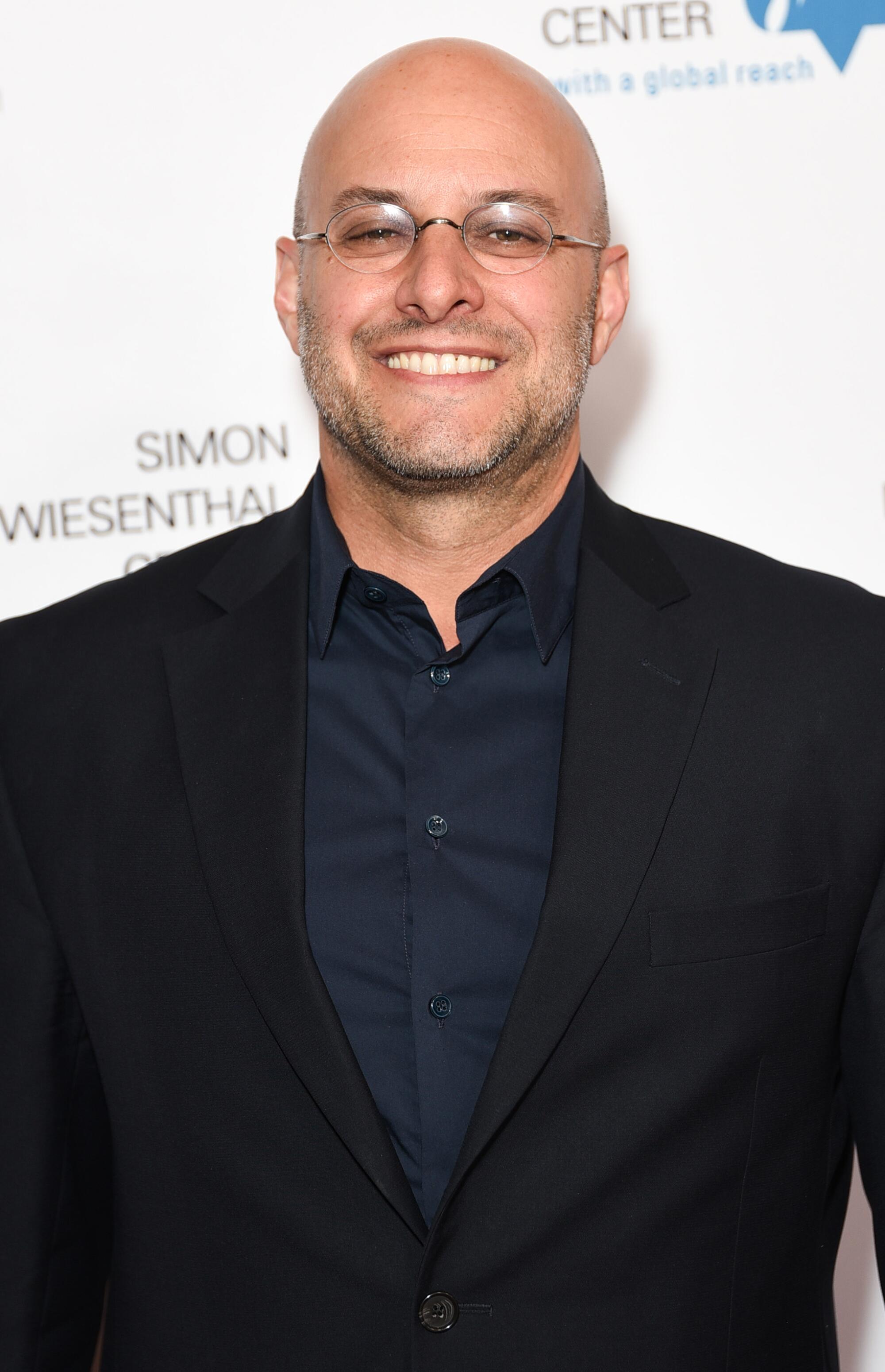
- Share via
In late 2017, ICM Partners CEO Chris Silbermann announced an audacious pledge: achieve gender parity in leadership positions and on the board by 2020.
It was part of a larger industrywide effort called “50/50 by 2020,” championed by prominent ICM client Shonda Rhimes and others in the wake of Hollywood’s reckoning over sexual harassment.
“Companies work best when … there is a balance of men and women in positions of leadership and positions all across the company,” Silbermann said during a 2018 policy summit. “We can’t be a company of a bunch of guys who look like me.”
Last year, ICM, which represents such stars as Samuel L. Jackson, Spike Lee, Regina King, Michael Keaton and Wanda Sykes — declared victory, telling Variety that at least half the agents promoted to partner status since 2017 were female. In March, the agency said 15 of its 23 departments are run or co-run by women.
But more than 30 former and current ICM employees said in interviews that the company tolerated a hostile work environment, where women and people of color were subjected to harassment, bullying and other inappropriate conduct. Since 2017, nearly a dozen women reported allegations of mistreatment by male agents and managers companywide to ICM Partners’ human resources department or senior leaders, according to interviews with the women and those with direct knowledge of the incidents.
“HR does not have any records of such allegations,” ICM said, although a source close to the company acknowledged that it did investigate some of the complaints and took appropriate actions.
“We were molded into thinking that being put down and yelled at was the way to become better, which is completely wrong,” said Jennifer Jendrzejczyk, a 25-year-old former ICM assistant who quit the company in January 2020 after less than a year.
Inside the business of entertainment
The Wide Shot brings you news, analysis and insights on everything from streaming wars to production — and what it all means for the future.
You may occasionally receive promotional content from the Los Angeles Times.
Two of the most serious incidents involved women who did not work for ICM. A film finance executive alleged that an agency partner had exposed himself to her inside a car, according to three people with knowledge of the matter who declined to be named. The agent denied that the incident happened. In a separate incident, an actress complained that her male agent made an unwanted advance in a hotel lobby, said two sources briefed on the matter. That agent did not respond to a request for comment.
ICM also faced pushback in 2019 over a video shoot that was intended to promote the company after Black support staffers said they were asked by human resources to pose as agent-trainees, a higher-ranking role that they did not hold, in an effort to make the agency appear more diverse.
In a statement, ICM said it “does not tolerate harassment, bullying or other inappropriate conduct. HR investigates all reports received and addresses each with appropriate disciplinary measures up to and including dismissal.”
Most of the people who spoke to The Times — who include former agents, managers and assistants — declined to speak on the record because they have signed nondisparagement agreements or because they feared retaliation from ICM.
Subscribers get early access to this story
We’re offering L.A. Times subscribers first access to our best journalism. Thank you for your support.
“If you are going to be the squeaky wheel, you are going to be destroyed, and it’s a choice between your career or complaining,” one former female ICM worker said.
Three female ICM board members, Lorrie Bartlett, Jennifer Joel and Janet Carol Norton, said in a statement that any insinuation that the company’s 50/50 by 2020 pledge “was an insincere marketing ploy is utterly irreconcilable with both the facts and our personal experience.”
They added: “Neither we nor our company are perfect; no one is. In a challenging, competitive, and labor-intensive industry that demands much of its participants, we feel privileged to enjoy both a safe and encouraging environment, fair and abundant opportunities, and the respect and support of all colleagues of all genders. With them, we continue to be engaged in a concerted effort towards a better and more equitable culture that will have broad, deep and longstanding effects on our peers and our clients.”
Founded in 1975, International Creative Management has become one of the industry’s leading talent agencies. Silbermann joined ICM in 2006 when it acquired Broder Webb Chervin Silbermann Agency, where he was the youngest partner and earned a reputation as a sharp and ambitious agent.
In 2012, the Century City firm rebranded itself as ICM Partners after Silbermann led the charge to make it a partnership, with agents buying out private equity investor Rizvi Traverse Management.
In a business in which outsize personalities loom large, Silbermann is known as a brash leader. He once trained with a professional boxer and has likened his job to that of legendary former Lakers coach Phil Jackson. “Meditating keeps your mind sharp,” Silbermann told W Magazine in 2008. “But go easy on the yogi stuff. … In my business it works much better to say, ‘I’ll punch you!’”
Silbermann declined a request to be interviewed for this article.
Those who’ve worked with him say the 53-year-old executive cultivates an insider culture in which certain agents join him in workouts at the gym or fly on a private jet to the Telluride Film Festival and stay at his house in Colorado.
Under Silbermann’s watch, ICM has expanded rapidly. It now has more than 500 employees but remains the smallest of the “big four” agencies that include WME, CAA and UTA.

In the agency world, ICM is seen as scrappy. Despite its relatively small size among the big firms, it represents major TV writers and producers such as “House” creator David Shore, “Grey’s Anatomy” creator Rhimes and “The Handmaid’s Tale” showrunner Bruce Miller.
In 2019 the company took on funding from Crestview Partners and began an expansion drive. Last year ICM bought London-based Stellar Group — making it a major player in sports representation — acquired live-music booking agency Primary Talent International and took a minority stake in Swedish firm Albatros Agency.
But as it has grown, ICM has confronted persistent questions over its treatment of women.
The agency faced blowback in May 2017 when former Fox News contributor Tamara Holder told HuffPost that ICM agents discouraged her from reporting to the network that she had been sexually assaulted by a Fox executive in 2015. She further alleged that the agents didn’t respond to her attorneys’ requests to corroborate her claims after she submitted a complaint that resulted in a $2.5-million settlement with Fox News.
ICM Partners acquired London-based Stellar Group, which represents more than 800 athletes. The purchase positions ICM as a major player in sports representation, competing against the likes of WME and CAA.
ICM told BuzzFeed in 2018 that an independent investigation found no wrongdoing by the agency.
Holder, an attorney who focuses on women’s rights and institutional abuse, remains unhappy about how ICM treated her. “I was forced to move forward by myself all alone,” she told The Times. “All I wanted was help.”
ICM said in a statement that Holder was not a client, that she was not included in an internal investigation because she had not filed an HR complaint, and that she was not interviewed because the company already had the documentary evidence and public materials it needed.
Holder disputed the claims. She said she was never advised by ICM to go to HR. She cited emails with ICM representatives reviewed by The Times, including a September 2016 exchange in which an agent wrote that he was “really excited to be working together.”
ICM’s reputation took another hit later in 2017 when Variety reported that one the agency’s partners, Erik Horine, was forced to resign over allegations that he made unwanted advances to female staffers dating to at least 2009. Horine apologized for his behavior.
Now a Times investigation has found that Horine wasn’t the only agency partner who was accused of misconduct.
A female film finance executive alleged that agency partner Steve Alexander exposed himself to her inside a car, according to three people with knowledge of the incident who declined to be named. In spring 2016 the executive met Alexander for business drinks at the Peninsula Beverly Hills and was driving Alexander to his car when he unzipped his pants and started touching himself in his genital area, according to one of the people with knowledge of the incident.
The executive later told a female senior leader at ICM about the incident and Alexander was put on leave, according to the three sources. A source close to the company said it conducted an investigation and took appropriate actions, which they did not specify.
Alexander has denied the allegations.
The female film finance executive declined to comment. The Times does not identify victims of alleged sexual assault without their consent.
Another alleged incident happened in August 2019, when Alexander sent a flirtatious direct message to a former ICM assistant, not his own, who had quit the agency months earlier after clashing with her boss, according to two people with knowledge of the exchange.
Alexander sent a “fire” emoji image to a former employee who shared on Instagram a selfie in which she was wearing clothes that accentuated her cleavage. A screenshot of the image was viewed by The Times.
ICM said in a statement that it doesn’t comment on specific employment matters that involve the privacy of third parties or are confidential. The agency also said that it “takes all allegations received of employee misconduct seriously” and responds with remedial steps such as coaching and training and disciplinary actions, including sanctions, leave and termination.
The company added that “all of the referenced matters were investigated and involved some combination of actions referenced above.”
Regarding the fire emoji, ICM said it was not aware of the direct message “that third parties might view as inappropriate or otherwise objectionable.”
Alexander joined ICM Partners in 2014 after stints at Resolution talent agency and CAA, where he was best known for representing the late actor Heath Ledger. His current clients include Tatiana Maslany and John Travolta, according to IMDbPro.
One of Alexander’s proteges, Kevin Hussey, was also accused of serious misconduct. In fall 2017, Hussey met up with a group of people including a female actor client at a hotel bar in New York. After the bar closed, he made unwanted advances, attempting to kiss the woman, according to two people who had been briefed on the matter but were not authorized to comment.
ICM subsequently appointed two female agents to take the female actor on as a client, the people said. Hussey later reported the incident to the agency and apologized to the actor, they said.
ICM declined to comment on the incident, but noted that the actor remains a client. The agency also said its employees have been trained to report incidents that may be viewed as a potential breach of its anti-harassment policy. Hussey did not respond to requests for comment.
Alexander wasn’t the only male partner who had been accused of inappropriate behavior.
Carter Cohn, who became one of ICM’s founding partners in 2012, is known by colleagues as a demanding boss.
During an August 2019 phone call, Cohn loudly berated a female agent for prematurely listing herself on IMDbPro as representing an actress who was leaving another agency, according to five people familiar with the matter. The female agent, whose office is in a different area on the same floor, was so shaken by the exchange that she cried in the restroom, two of the people said.
Cohn, 48, was later reprimanded by a senior executive, two of the people said.
ICM and Cohn declined to comment.
Rudin says he’s stepping back from Broadway and film projects. But few big players in Hollywood have spoken up about recent allegations of bullying.
Brad Turell, the agency’s senior vice president of corporate communications, also was the subject of complaints. The veteran publicist and former Time Warner and Paradigm executive joined the company in July 2017.
Three people within the agency told the company’s HR department about Turell’s conduct in 2017 to 2019, alleging that he made crude or derogatory remarks about women, former employees said.
“This is not who I am, but if anyone feels that I was disrespectful or derogatory at any time, I sincerely apologize,” Turell said in a statement.
In February 2019, Turell slammed his hands on his desk and yelled at an assistant in front of co-workers after she connected him a few minutes late to a phone call. He told the assistant that she acted like she worked “in a f— nail salon,” prompting her to break into tears, according to two former employees who witnessed the exchange and declined to comment because of fear of retaliation.
The assistant filed a complaint with human resources, and soon after quit her job. She was paid an undisclosed severance and left the entertainment industry, the sources said.
“After a series of errors that led to this moment, my anxiety level was high and I spoke in a tone that I regret, apologized for, have learned from and have not repeated,” Turell, 64, said in a statement. “However, let me be perfectly clear, I vehemently deny making the statement that is ascribed to me here. It never happened.”

Many of the allegations about abusive behavior by managers have come from assistants in entry-level jobs in which pay is low and turnover is high. Assistants have been clamoring for better working conditions across Hollywood, but at ICM, agents accused of misconduct are rarely punished severely, former employees say.
One former assistant wrote in an HR complaint that Mitch Blackman, an ICM agent who represents such artists as modern jazz musician Kamasi Washington, had threatened to “break my ankles” if she divulged information about a conversation they had and “that I could report him for that because he ‘didn’t care,’” according to an October 2017 email addressed to the head of HR that was reviewed by The Times. Blackman discouraged her from attempting to transfer offices by saying, “You are mine. No one else can have you,” according to the email.
That former assistant, as well as a second female assistant who worked alongside her in 2017, recalled Blackman calling them “dumb and dumber.”
“My boss screamed at you and pushed people beyond their limits,” said the second former assistant in an interview, adding that Blackman yelled so loudly his voice could be heard six offices down. “It was exhausting and total insane behavior that shaped my perception of the music industry. Those habits I am still unlearning.”
The assistants were later transferred from Blackman and eventually left ICM; both remain in the entertainment industry. Blackman and ICM declined to comment, citing the agency’s policy regarding not discussing confidential employment matters.
Sources close to ICM said that the company took “appropriate action” after the 2017 HR complaint against Blackman and that he received remedial and disciplinary action, including training and coaching, which he “found very valuable and positively impacted him as a professional and his conduct in the workplace.”
Blackman, 41, who got his start as a jazz trumpet player, has acknowledged that he can be loud. “It’s amazing when you’re a New Yorker that’s too loud for other New Yorkers,” he said in a Promoter 101 podcast in 2019.
Blackman’s profile in the company has continued to rise. In February, ICM announced that he was part of its new concerts leadership committee, describing Blackman on Instagram as one of ICM’s star agents.
“ICM saw an opportunity to further develop career paths of young executives who exhibit leadership skills and management potential,” the company said.
After years of low wages and abuse, Hollywood assistants are in open revolt over their treatment.
The pattern reflects a broader problem at the company, said Jendrzejczyk, who studied public relations and communications at Adelphi University. She had hoped to climb the ladder to be an agent at ICM when she joined in April 2019, but left after nine months. When she was at ICM, Jendrzejczyk raised concerns with HR about her boss insulting her intelligence, according to three former employees.
“The frustration many former assistants are feeling stems from the lack of support from HR,” said Jendrzejczyk, who now works as an executive assistant at a ride-hailing startup. “You are literally turning a blind eye to the abuse.”
ICM disputes the claim.
“ICM is sorry to hear that anyone felt inadequately supported,” the company said in a statement. “That said, we also categorically deny any complaint being covered up or any limitation of appropriate remedies — that is why ICM investigates any and all complaints of employee misconduct and takes appropriate and disciplinary action up to and including termination of employment where warranted.”
Lauren Sorantino, who studied communication and media studies at the University of Pennsylvania, recalled an incident that occurred when she worked as an assistant at ICM. Sorantino said she and the agent she worked with, Craig Shapiro, had a falling-out after she complained about a September 2019 phone call she was on, in which Shapiro and a manager discussed the “hot” women attending his son’s college.
Sorantino said Shapiro became defensive when she raised her concerns with him and told her she should expect to hear such comments within the agency. She said she discussed the incident with the HR department and was transferred off his desk. She left the company in February 2020. She now works as an assistant at a production company.
“I was just a college girl two or three months” earlier, said Sorantino, who was 22 at the time. “That is the type of stuff that was really uncomfortable.”
A colleague contacted by The Times recalled how Sorantino was upset over her exchange with Shapiro, who is now 52.
ICM promoted him to partner in 2020.
“Craig Shapiro is an outstanding agent and advocate for his clients and during many years of service at ICM earned his promotion to partner based on merit,” ICM said.
Kiran Subramaniam, 32, started as an assistant at ICM in July 2015. During her six months at the company, Subramaniam says, her boss, then-partner Mark Gordon, would leave trash such as food leftovers on her desk and expect her to clean it up. She said Gordon called her a “f— moron” when she couldn’t secure a lunch reservation at exactly 1:15 p.m. at Bouchon. She said Gordon once threw a package at her, skimming her face, saying “I don’t want this.” Subramaniam walked out and recounted the experience to a colleague, who recalled the incident when contacted by The Times.
“When it happened, you feel so small and so disrespected,” Subramaniam said, recalling a meeting with an HR manager. “She said, ‘Oh honey, you are just new to this kind of culture. He doesn’t mean it, it’s just his way.’ I was dumb enough to believe it.”
Subramaniam is now a showrunner’s assistant. Gordon left the agency in 2016.
“There’s no truth to the allegations of name-calling or throwing things,” Gordon said in a statement. “It’s heartbreaking to hear as it’s completely inconsistent with my values or any behavior I’ve ever demonstrated.”
The human resources department at ICM itself has been the subject of controversy, with three department heads in three years. The company’s current chief of human resources is Courtney Kelley, who joined last year from the National Football League.
Kelley’s predecessor, Cindy Ballard, was named in a wrongful-termination lawsuit filed in 2019 by former partner Spencer Baumgarten, who alleged he was defamed as part of an HR investigation. ICM called the claims baseless and defended Ballard’s handling of the investigation. The case is pending. (Ballard was previously chief human resources officer for Tribune Publishing Co., which previously owned the Los Angeles Times).
The HR department led at that time by Ballard faced a backlash over a video shoot intended to feature the agency’s agent-trainee program during Black History Month in 2019. Black assistants were asked by HR to pose as agent-trainees because there were so few people of color in the program, according to 10 former employees. ICM has also faced criticism for not employing a racially diverse staff.
Jabari McDonald was just three months into his job as a media rights assistant when an HR manager came to his desk and asked if he’d be willing to help fill the space in a video shoot that would highlight ICM’s agent-trainee program. McDonald, who has a master’s degree in film from Columbia University, figured his role would be to sit in the background so the room wouldn’t appear empty.
Instead, he and two other Black support staffers were asked to sit next to a line of white agent-trainees, presenting the appearance they were part of the program when they were not, McDonald said.
“You wouldn’t have to use Black assistants as props if there were enough Black people here that could naturally be here in this program,” the 29-year-old said. “The situation could have been mitigated if they pay people more and if they stopped giving priority to nepotism hires.”
After several staffers complained, an HR manager apologized to McDonald about what happened and the footage of the Black assistants from the agent-trainee meeting was not included in the final video, he said. McDonald left ICM for another job in June 2019 and is currently a writer’s assistant.
“It was poor judgment,” ICM said, adding, “it was quickly corrected.”
After L.A.-based Digital Brand Architects posted its support for Black Lives Matter, it faced a backlash from Black former employees who say say they were mistreated by the company.
McDonald remains skeptical about the company’s pledges to make more diverse hires.
“It’s a lot of talk and very little action,” McDonald said. “They’re putting on the performance that they are putting in the work, and behind the scenes they are not.”
In June some assistants and administrative staff in the agency’s touring department banded together to push the leadership to make institutional changes, starting with raising the pay above $15 an hour. They believed the “systemic absence of racial diversity at the agency to be a direct result of our low wages,” according to a note to staff in an email obtained by The Times. “While all of ICM’s donations to organizations bolstering the Black Lives Matter movement are commendable, we assistants and support staff would have rather seen an investment in fixing the systematic exclusion of Black people from this office through pay increases. If the company wants to truly see more Black and brown faces in the mailroom and beyond, it is going to have to pay up.”
The company said it held a meeting to hear the concerns of assistants and made changes based on their feedback.
Later that month, ICM laid off 40 of its support staff, which included people of color, and said it was revamping its assistants program and raising wages to $20 an hour.
“We want to reimagine a new, more rigorous agent training program to provide greater structure, enhanced on the job training, and to effectively grow assistants into greater roles within the agency and the industry,” wrote the agency’s co-presidents Sloan Harris and Kevin Crotty in a staff memo. “We must place increased emphasis on the recruitment of highly qualified diverse candidates for all positions.”
ICM said it has taken steps to improve the diversity of its staff, noting that it was the first major agency to promote Black Americans to prominent positions, including heads of the talent and music departments. In June 2020, the agency launched “Diversity/ICM,” an initiative focused on the recruitment, training and mentorship of Black candidates in the agent training program, with seven internship spots reserved for candidates from historically Black colleges and universities.
To be sure, the lack of diversity is a challenge for other agencies.
“It’s an entire entertainment industry problem that you have these jobs that pay so little,” said Miguel Parreño, 32, a former mailroom clerk who worked at ICM from January 2018 to April 2020. He was laid off during the pandemic and is now pursuing a career as a writer.
“You need certain experience to get in the door, and a lot of the higher-level jobs and other studio-level jobs require the agency to be basically a clearinghouse for job opportunities, and the only way to get into those opportunities is through a very white lens,” he said.
Former WME partner and talent agent Phillip Sun recently launched his own management firm M88, with plans to push for more inclusive storytelling in Holllywood.
ICM has very few Black leaders in prominent positions. In 2019, ICM promoted partner Bartlett to its board, saying it was the first major agency to add a Black board member. Bartlett is one of four female board members and the only woman of color.
ICM has 60 partners and managing directors, with four who are Black, three who are Asian and one who identifies as two or more races, said a person close to the company. The agency says close to 40% of its partners are women. The company declined to specify whether it has any Latino partners.
Critics say ICM hasn’t made enough progress. In January, ICM announced the promotion of 14 agents, none of whom were Black or Latino, according to former employees.
“Congratulations to everyone but this list sure does look homogenous,” commented actor and ICM client Dulé Hill on ICM’s Instagram post. “A little diversity could go a very long way. A lot of diversity would go even further.”
- Share via
Watch L.A. Times Today at 7 p.m. on Spectrum News 1 on Channel 1 or live stream on the Spectrum News App. Palos Verdes Peninsula and Orange County viewers can watch on Cox Systems on channel 99.
Times researcher Scott Wilson contributed to this report.
More to Read
Inside the business of entertainment
The Wide Shot brings you news, analysis and insights on everything from streaming wars to production — and what it all means for the future.
You may occasionally receive promotional content from the Los Angeles Times.

















